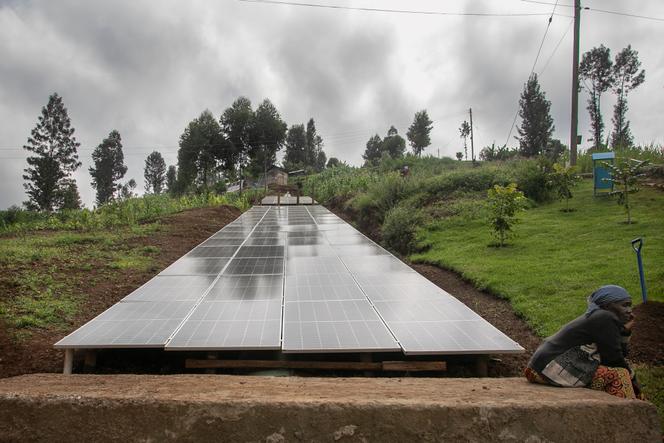


All have answered the call, and that's already a sign of the importance attached to this first African climate summit, organized in Nairobi from September 4 to 6. United Nations Secretary-General Antonio Guterres, Emirati President of the next United Nations Climate Conference (COP28) Sultan Al-Jaber, US Special Envoy for Climate Change John Kerry, representatives of major international financial institutions and European Commission President Ursula von der Leyen will all be attending the event, which aims to raise the continent's profile in the climate change debate and show that it can be a force for change. "It is possible to have a positive narrative about the response to climate disruption and how Africa can develop by deploying renewable energies and transforming its critical minerals for the global energy transition," explained Joseph Nganga, the man responsible for organizing the meeting under the aegis of the African Union. "This is assuming that the rest of the world commits itself to sharing technologies in a fair way and that the promises made around financing are kept. That's the message we want to send."
Kenyan President William Ruto, host of the summit, embodies this ambition, and his pragmatic approach should appeal to countries historically responsible for global warming, relieved to escape demands for reparations from others. "William Ruto shares with us a collaborative vision of the discussions that will define the new climate financing architecture. He is not [caught up] in a logic of compensation or North-South fragmentation," said a French diplomatic source, recalling the African head of state's July speech at the Paris summit for a new global financial pact. "Africa has always been classified as a victim and a problem. We no longer want to be confined to this role, we want to be at the table where we're all seeking solutions," Ruto declared. Kenya adopted a green growth strategy in the late 2000s. Today, nearly 90% of its electricity comes from renewable sources.
Although the country is well advanced in its energy transition, Kenya, like its neighbors in the Horn of Africa, is suffering the consequences of extreme climatic events. The most intense drought in 40 years has decimated livestock and wildlife, and plunged nearly 4 million people, out of a population of 50 million, into hunger.
The ever-increasing reality of climate disruption strengthens the position of African leaders, according to economist Carlos Lopes, President of the African Climate Foundation. "No one disputes the fact that Africa, which is in no way responsible for global warming, is the continent that suffers most. This gives it the legitimacy to make bold proposals such as debt relief," he explained, pointing out that successive shocks (Covid-19, war in Ukraine, tightening of credit conditions) have left many governments facing an insoluble equation. Among others, Malawi, the landlocked southern African country swept by Cyclone Freddy in March 2023 – with more than 1000 victims and considerable material damage – is suffocating from debt service payments. It announced a few days ago that it was being forced to enter into renegotiations with its creditors.
You have 27.41% of this article left to read. The rest is for subscribers only.
